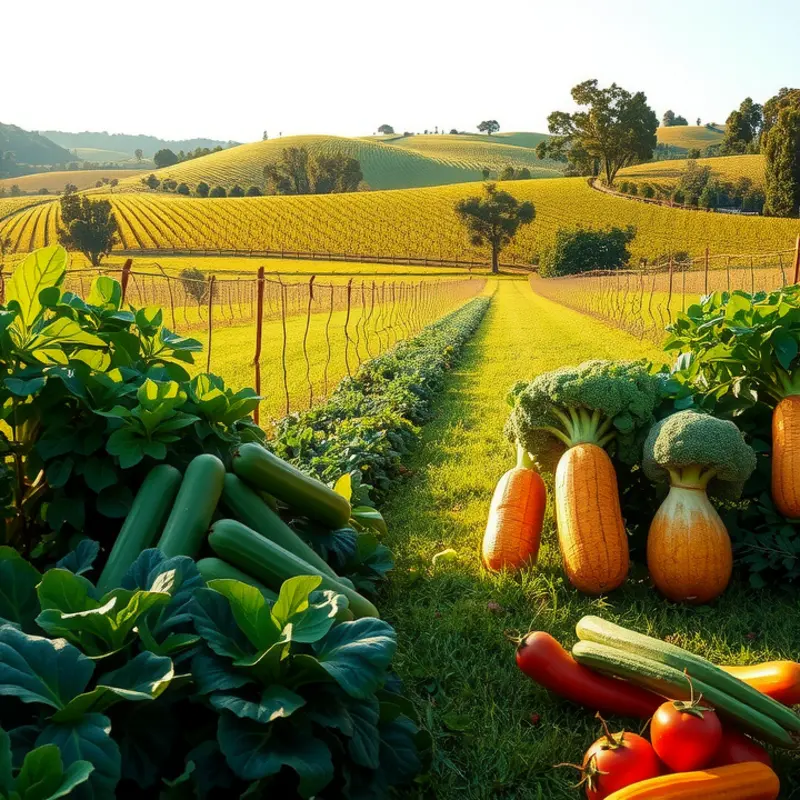In a world increasingly focused on wellness, the anti-inflammatory vegan diet emerges as a powerful approach to health. Rich in whole foods, this diet leverages nature’s bounty to combat chronic inflammation—a root cause of many modern diseases. From vibrant fruits and vegetables to healthy fats, this lifestyle not only supports physical health but also aligns with ethical and environmental values. As curiosity grows, understanding how this diet works and how to implement it can empower individuals to make informed choices for their wellbeing.
Understanding Inflammation and Its Impact

Inflammation is the body’s natural response to injury, infection, or stress, aimed at healing and protecting tissues. Though essential for survival, chronic inflammation often spells trouble, linked to ailments like heart disease, diabetes, and arthritis. To understand this process, it’s crucial to explore both its causes and far-reaching effects on health.
At its core, inflammation is the immune system’s way of combatting threats. When a harmful stimulus is detected, the body increases blood flow to the affected area, releasing white blood cells and other substances to heal tissue. While acute inflammation facilitates recovery, chronic inflammation can persist, contributing to disease development.
Many factors can trigger chronic inflammation. Common culprits include persistent infections, long-term exposure to irritants, obesity, and autoimmune disorders, where the body mistakenly attacks its own tissues. However, the diet itself is a significant, often overlooked, contributor.
Modern diets frequently feature processed foods, excessive sugar, and unhealthy fats, which can exacerbate inflammation. Trans fats, found in many fried foods, and refined sugars spike insulin levels, promoting an inflammatory response. Additionally, excessive consumption of omega-6 fatty acids, prevalent in many oils, can disturb the balance with anti-inflammatory omega-3s.
A dietary shift can substantially impact inflammation levels and overall health. Adopting a vegan diet rich in anti-inflammatory foods offers a promising pathway to better health. Plant-based foods abound in antioxidants and phytochemicals that combat oxidative stress and inflammation. Foods like leafy greens, berries, nuts, and seeds are especially potent.
Antioxidants protect cells from damage, while phytochemicals can reduce inflammation markers. For example, flavonoids found in fruits and vegetables have been linked to reduced inflammation and improved vascular health. A vegan diet can thus help recalibrate inflammation levels, paving the way for enhanced well-being.
For those exploring ways to adjust their diet effectively, consider the benefits of incorporating more plant-centered meals. For more guidance on making easy plant-based dietary changes, visit this guide to plant-based eating.
Recognizing and managing chronic inflammation can lead to significant health benefits, amplifying energy, and reducing disease risk. A thoughtful, anti-inflammatory vegan diet stands as a powerful tool in fostering both physical and mental health.
Building an Anti-Inflammatory Vegan Plate

Crafting an anti-inflammatory vegan plate involves selecting the right ingredients to reduce inflammation and enhance overall well-being. Central to this approach are leafy greens like kale and spinach, known for their high antioxidant content. These are essential in any meal to combat oxidative stress. Accompany them with berries, such as blueberries and strawberries, which are rich in vitamins and polyphenols.
Incorporate a variety of nuts and seeds, like walnuts and flaxseeds, offering omega-3 fatty acids that help reduce inflammatory processes. Turmeric and ginger are functional spices valued for their anti-inflammatory properties, and they can be easily added to meals for a flavorful boost.
Here is a simple recipe you might enjoy: Turmeric Quinoa Salad. Start by cooking a cup of quinoa in water with a teaspoon of turmeric. Mix in chopped spinach, a handful of walnuts, and a sprinkle of pomegranate seeds. Dress with a squeeze of lemon juice and a dash of olive oil for added omega-3 content.
When assembling your plate, avoid processed sugars and trans fats. These are present in many packaged foods and fast food items and can exacerbate inflammation. Opt instead for natural sweeteners like maple syrup or dates in moderation.
Understanding portion sizes helps maintain a balanced diet. Aim for a couple of servings of greens, a serving of whole grains like quinoa or brown rice, a handful of nuts or seeds, and a cup of mixed vegetables per meal. This approach ensures nutrient diversity while keeping inflammation at bay.
Meal prepping can simplify adhering to a vegan anti-inflammatory diet. Dedicate a day to batch cooking grains, chopping vegetables, and preparing dressings. Store in clear containers to keep track of ingredients efficiently. This technique not only saves time but also reduces stress and cooking anxiety, making nutrient-rich meals more accessible.
Transitioning to an anti-inflammatory vegan lifestyle takes time and patience. However, with the right meal-building tips and a conscious approach to ingredient selection, it’s a rewarding journey toward better health. That way, when you open your fridge, you’ll find a variety of ready-to-use, wholesome ingredients that take the guesswork out of healthy eating.
Final words
The anti-inflammatory vegan diet presents an exciting opportunity for anyone looking to enhance their health through conscious eating. By understanding the role of inflammation in our bodies and embracing a plant-based lifestyle, individuals can foster not just personal wellness, but also contribute to a more sustainable world. With so much delicious variety to explore, transitioning to an anti-inflammatory vegan diet can be both fulfilling and beneficial. It’s never too late to start—each meal is a chance to nourish your body and embrace a healthier, vibrant life.








